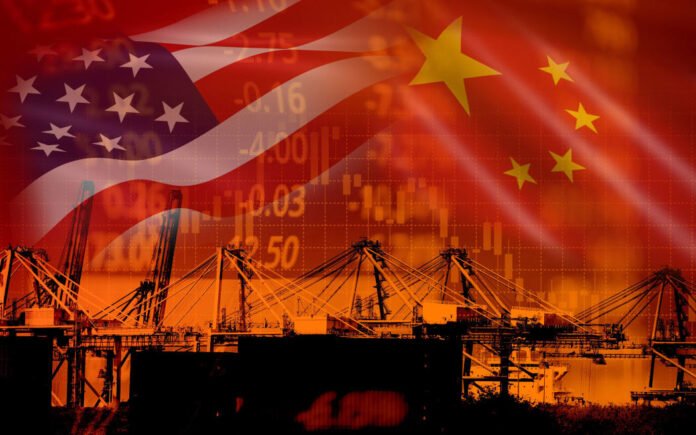The US-China trade war is heating up once again as former President Donald Trump imposes a massive 145% tariff on all Chinese imports, signaling a major escalation in the ongoing economic standoff between the world’s two largest economies. While the White House offers a 90-day tariff reprieve to other countries, China is excluded, prompting swift retaliation from Beijing.
In response, China has implemented new trade restrictions targeting American industries, including limiting the export of US films and raising tariffs on US goods to 84%. The economic conflict between the US and China is now entering uncharted territory, with high-level diplomatic talks stalled and tensions mounting over supply chain security, technology decoupling, and rare earth mineral exports.
Trump Demands Beijing Initiate Talks
According to senior White House officials, Trump refuses to initiate contact, insisting that President Xi Jinping must request a dialogue first. Beijing, however, views this stance as disrespectful and insists that any talks must occur on the basis of “mutual respect and equality.” China has rejected back-channel efforts involving Foreign Minister Wang Yi, instead requesting a different interlocutor more trusted by Trump’s inner circle.
Strategic Moves: Rare Earth Minerals and Corporate Pressure
China is reportedly weighing a ban on rare earth mineral exports, a critical component for US tech and defense industries, and has considered targeting major American companies operating in China, such as Apple, Tesla, and Starbucks. However, fears of domestic backlash have thus far prevented direct action.
The CCP is instead shifting supply chains by sourcing soybeans and agricultural products from countries like Brazil, rather than relying on the US heartland, undermining American farmers.
A High-Stakes Economic Game of Chicken
Experts warn that both nations are preparing for a drawn-out economic conflict that could carry global consequences. Trump has expressed interest in a “grand bargain” that includes trade, fentanyl regulation, and possibly restructuring TikTok in the US, but so far, diplomacy has been hampered by deep distrust and political optics.
Former officials say that Xi Jinping’s political strength at home gives him more room to maneuver and absorb economic pain, while Trump’s team believes China can’t afford prolonged economic decoupling. Still, many view this as a form of mutually assured economic destruction with neither side willing to blink first.
Global Implications of the US-China Economic Rift
With negotiations frozen and trade tensions rising, the Biden-Trump divide on China policy, ongoing disputes over AI, advanced manufacturing, and Taiwan, and the collapse of trust between the two powers suggest that a full economic reset is unlikely in the near term.
Whether Trump’s deal-making instincts will eventually override his push for decoupling remains uncertain. But for now, the US-China trade war in 2025 looks increasingly like a long-term showdown with profound implications for global markets, supply chains, and geopolitical stability.

